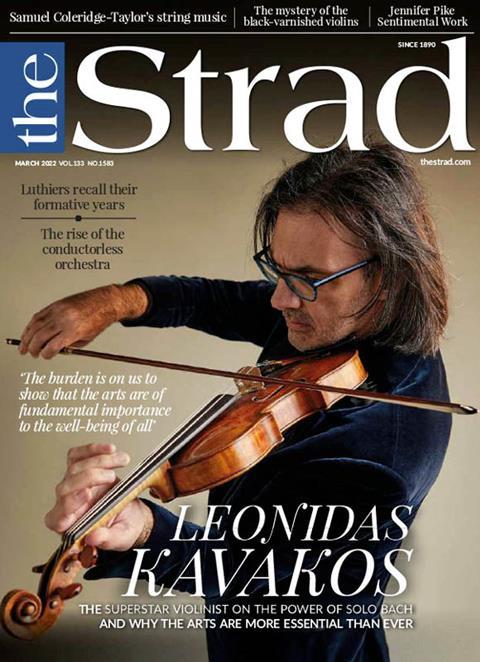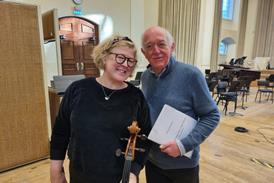Mental illness is often comorbid with chronic physical conditions, resulting in multiple challenges for many luthiers, as Peter Somerford examines

The following extract is from The Strad’s March 2022 issue Analysis ’Food for thought’. To read it in full, click here to subscribe and login. The March 2022 digital magazine and print edition are on sale now
Focusing on lutherie’s physical challenges without addressing mental health also ignores the fact that, as Cossmann Cooke points out, mental illness is often comorbid with chronic physical conditions: ‘Depression, for example, can accompany physical disease or illness because those physical issues place limits on what we can get done at the bench.’ He adds: ‘As in larger society, there are also folks in the trade who have mental health issues such as anxiety but also have attention deficit disorder (ADD), obsessive compulsive disorder (OCD) or are on the autism spectrum. These people face challenges on two fronts.’
‘Depression, for example, can accompany physical disease or illness because those physical issues place limits on what we can get done at the bench.’
One maker and restorer who has OCD and anxiety explains: ‘There are different flavours of OCD but what I struggle with is checking things, so I’ll keep asking myself, “Is that glue pot shut off?” or, “Is that clamp too tight?” When I’m working in a shop, I’ll try not to be the last one to leave for the day, so I don’t have the responsibility of checking everything is switched off. It can become difficult for me as a maker and restorer to let go and move on to the next step. Instead of seeing that I’ve achieved a professional result, I feel as if I have to keep trying to make things better.’
With the onset of the pandemic she found her anxiety and OCD were eased by being able to work at home. She says: ‘I’ve had anxiety attacks throughout my life but I feel very relaxed and protected when I’m alone doing new making in my home workshop, so the first few months of lockdown were amazing because I didn’t have to leave the house. But when I had to go back into the shop, and the staggered work schedules meant I had to be there on my own, the OCD triggers came back. And everyone in general seemed stressed, which sent my anxiety levels up.’
Today, she feels that overall, through the course of the pandemic her OCD symptoms have improved. She also hopes that the shared experience of the past two years will bring more openness towards discussing mental health: ‘Maybe because the whole situation made a lot of people suddenly experience the kind of anxiety issues that I’m used to dealing with, there will be more willingness now to talk about mental health challenges.’
Read: Analysis March 2022: Food for thought
Read: Analysis January 2021: Lost at sea? Mental health services for musicians
-
This article was published in the March 2022 Leonidas Kavakos issue
The Greek violinist tells Charlotte Smith why his recording of Bach’s Solo Sonatas and Partitas is a culmination of a three-decade journey. Explore all the articles in this issue
More from this issue…
- Leonidas Kavakos
- Conductorless Orchestras
- Early Lutherie Experience
- Laura van der Heijden
- Luigi Cavallini
- Coleridge-Taylor Violin and Chamber Music
Read more playing content here
-

5 insights on mental health from The Strad archives
- 1
- 2
- 3
- 4
- 5
 Currently reading
Currently readingChallenges at the bench: mental health and luthiers
- 6
- 7









































No comments yet